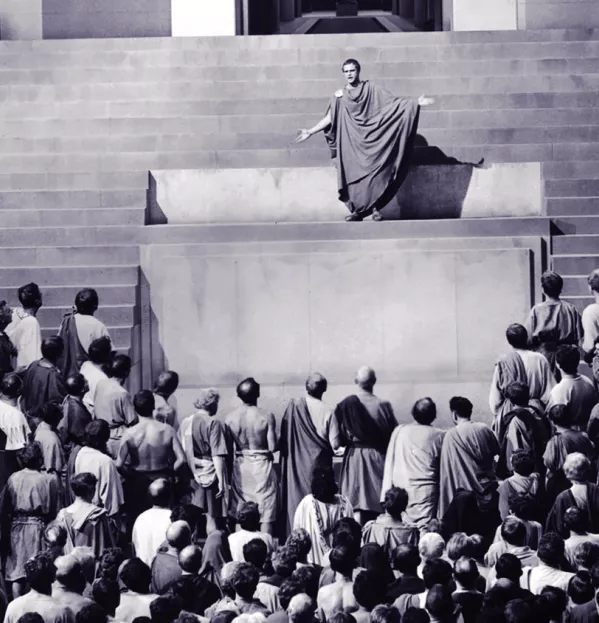Five tenets of good leadership

Heads typically serve a long notice period. Unless there are exceptional - usually upsetting - circumstances, six months or more is typical. But many headteachers will make the decision even earlier, usually when they are retiring, in order to give their school a year or longer to recruit a successor in this tough employment climate.
I handed in my own notice a full six-anda-half months before I intended to move on. Just a few months after doing so, I have found that it has brought out the reflective side of my personality. I’ve told everyone I’m going, yet I am still here, ensuring that the ship is running full steam ahead until the summer, while ruminating about what lies ahead and what I’m leaving behind.
I’ve been a headteacher for six years and I have learned a tremendous amount in that time - I had to, I was way out of my depth to start with - and a number of key tenets of leadership keep popping up as I think back over that time and ahead to my next role.
1. Communicate like a broken record
It is difficult to overstate quite how poor I was at communication when I first became a headteacher. This isn’t false modesty. Parents and colleagues told me to my face. I’m grateful to them for their candour as they forced me to get better. Communication was a common topic of conversation with our former chair of governors, Brad Goodwin. He ran SC Johnson in the UK for a while and taught me an awful lot. “It’s only when you sound like a broken record, when you’re heartily sick of the sound of your own voice, that you know you’re communicating enough,” he advised.
You can overdo it, of course, but at least no-one can say that they don’t know what you stand for.
2. You’re never off-duty
As a leader, there is no such thing as a trivial comment or an inconsequential conversation. Every conversation and interaction is a chance to bolster your vision and get that message across (à la Brad’s advice, above). It’s also a chance to damage it. The walls in schools are spectacularly thin (this works both ways, by the way) and an off-the-cuff remark can spread like wildfire.
As a leader, there is no such thing as a trivial comment or an inconsequential conversation
I was once confronted with, “You’ve been heard saying to Shona that she’s the most important person in the school.” It was true; I had said that to Shona. Not smart, maybe, but I did it. I’d also said it to our site manager and our bursar. I knew what I meant when I said it, but I hadn’t paused to think how it would sound to others or how literally they would take those words.
3. You’ll always feel responsible
Early on in my headship a colleague, who had become a headteacher at the same time, remarked that she was living with a constant base level of anxiety. I admitted I was too, and we reassured each other that this would surely pass with time.
That anxiety has certainly diminished, but it has never disappeared altogether. Early on, I regarded everything that went wrong or that wasn’t right as a reflection on me. The collapsed drain in the car park, the regular appearance of fox poo on the playground, a child in a state of distress.
Managing this emotional toll and making sure that I don’t radiate that stress out has been a challenge
I don’t blame myself any more for these little things, but I still worry about them, alongside the big ones like the budget and recruitment and retention.
Managing this emotional toll and making sure that I don’t radiate that stress out to other staff members has been, and continues to be, a challenge.
4. There will always be ‘not in my name’ moments
I skipped in to being a headteacher thinking that I’d have time to figure it out as I went along. I was in for a shock on day one. At 8am, I was presented with the rota for Year 10 to clean the staffroom. I didn’t even have to think twice.
“That’s not happening while I’m head of this school,” I thought. “If the staffroom is dirty, we’ll clean it or it stays dirty.” Swift decisions such as that unnerved colleagues who had been used to years of stability, but I knew for sure that I was going to start as I meant to go on. If I walked past it, I condoned it.
5. Humility is underrated
My biggest challenge is yet to come. I am going to have to be professionally secure and humble enough to accept that a successor will want to improve the things I haven’t done well enough - there are plenty, and I know that I’m going to find that difficult. But it’s part of growing up and I’ve still got a lot of that left to do.
Jarlath O’Brien is headteacher of Carwarden House Community School - for a little while longer, anyway...
You need a Tes subscription to read this article
Subscribe now to read this article and get other subscriber-only content:
- Unlimited access to all Tes magazine content
- Exclusive subscriber-only stories
- Award-winning email newsletters
Already a subscriber? Log in
You need a subscription to read this article
Subscribe now to read this article and get other subscriber-only content, including:
- Unlimited access to all Tes magazine content
- Exclusive subscriber-only stories
- Award-winning email newsletters